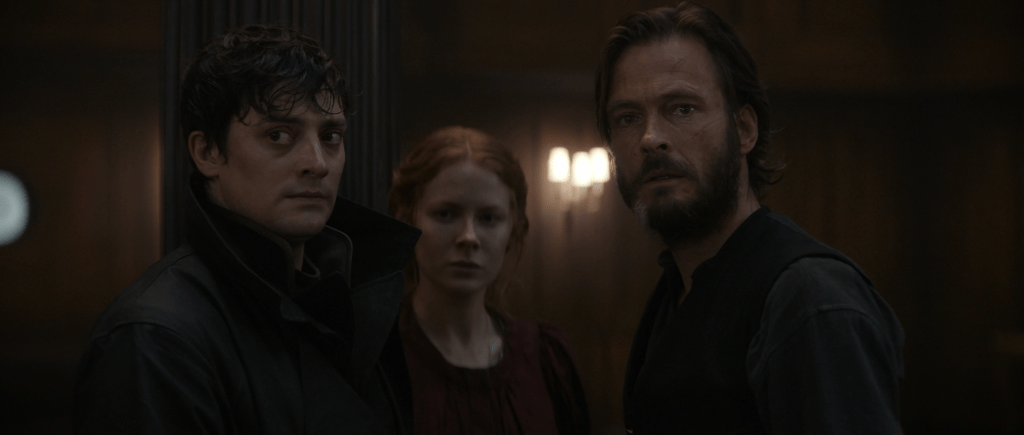
If asked what television show from the past few years I would recommend to the sci-fi fanatic in search of their new obsession, my instant response would have been Dark, the German-language mystery-thriller that centres around the suspicious disappearances of local children in an isolated town. The Netflix-distributed show, which ran for three brilliant and mind-bending seasons, was co-created by Jantje Friese and Baran bo Odar, the same creative duo behind the streaming giant’s new release, 1899. As a huge fan of Dark, I was looking forward to 1899, hoping to experience the same level of intrigue and genre-bending storytelling: I wasn’t disappointed.
Set at the turn of the century, 1899 sees Emily Beechum’s Maura searching for answers to the disappearance of her brother, whom she believes went missing whilst on board the Prometheus during its ill-fated transatlantic crossing. Having boarded the boat’s sister ship, the Kerberos, Maura encounters a variety of fellow passengers who, like her, appear to have set sail in search of a resolution to the different mysteries or personal crises they mostly keep to themselves. The crew and passengers of the Kerberos, representing a multi-lingual assortment of performers and characters that extend the show’s cultural perspective beyond the almost exclusively Germanic Dark, are just one element of the show’s greater mystery, an enigma that slowly begins to play its cards by the end of episode 1, ‘The Ship’, when the Captain (Dark‘s Andreas Pietschmann) decides to investigate an SOS signal that may or may not belong to the presumedly lost Prometheus, some four months after it went missing.
Fans of Dark will quickly be able to trace the thematic and aesthetic similarities between each show, with the slow but steady excavation of a central sci-fi-inflected conspiracy at the core of 1899‘s narrative. The show’s use of a distorted cover version of Jefferson Airplane’s, ‘White Rabbit’ (‘When logic and proportion, have fallen sloppy dead‘) sets the thematic tone as its theme song, immediately hinting toward its overriding interest with reality and our often imperfect perception of the world around us. Alice’s adventures in ‘Wonderland’ was similarly one of the cultural touchstones for Neo’s awakening to the false reality depicted in 1999’s The Matrix – a film which acts as a clear influence here – with the philosophy of Plato being another reference point at play.
Arguably, 1899 will live or die by its viewer’s willingness to get on board with the exponentially bizarre strands of science-fiction iconography and non-linear storytelling that very quickly emerge within what, at least initially, appears to be a period mystery. Posters and trailers for the show have masterfully perfected a balancing act between hinting toward its genre-leanings whilst also masking the details of its central premise; details, it should be said, that have to some extent been left hanging by the close of the season’s mind-fuck of a cliff-hanger, evidently positioning itself for a follow-up season. Structurally, the eight episodes feel very similar to the development and eventual climax of Dark in its first season, a sense perhaps that its creators are treading safe(r) ground in the writer’s room (although to describe 1899 as conventional or ‘safe’ is quite impossible). That said: if it isn’t broken – why change it? Hopefully, Netflix will give the producers another season, inviting us to spiral down the rabbit hole even further, replicating the same critical acclaim that Dark fostered with eyes on a more mainstream audience (or at least one that is willing to traverse the one-inch-hurdle of the former series’ subtitling).